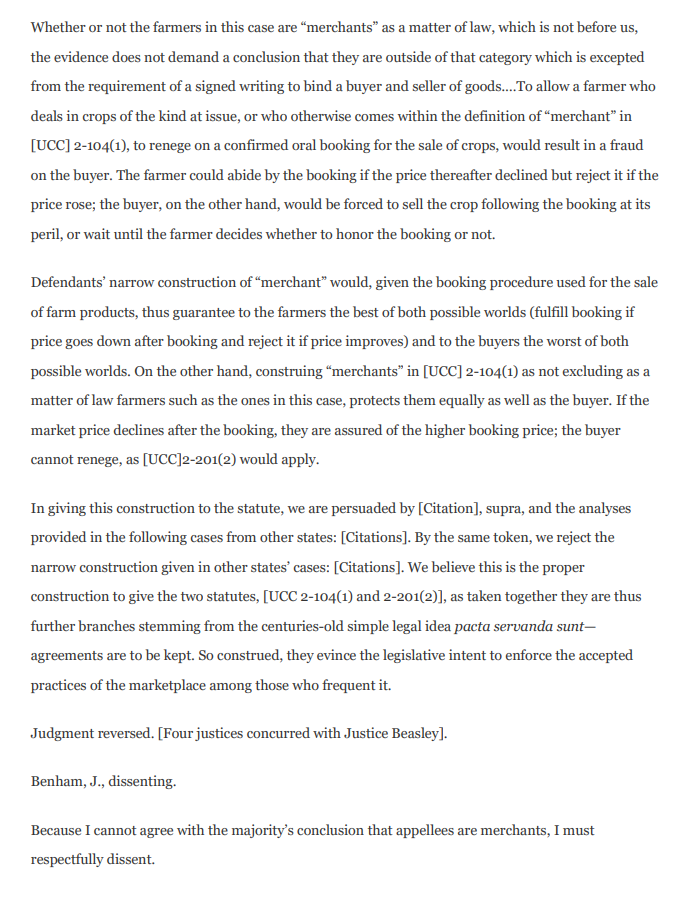Answered step by step
Verified Expert Solution
Question
1 Approved Answer
Whether or not the farmers in this case are merchants as a matter of law, which is not before us , the evidence does not
Whether or not the farmers in this case are "merchants" as a matter of law, which is not before us
the evidence does not demand a conclusion that they are outside of that category which is excepted
from the requirement of a signed writing to bind a buyer and seller of goods....To allow a farmer who
deals in crops of the kind at issue, or who otherwise comes within the definition of "merchant" in
UCC to renege on a confirmed oral booking for the sale of crops, would result in a fraud
on the buyer. The farmer could abide by the booking if the price thereafter declined but reject it if the
price rose; the buyer, on the other hand, would be forced to sell the crop following the booking at its
peril, or wait until the farmer decides whether to honor the booking or not.
Defendants' narrow construction of "merchant" would, given the booking procedure used for the sale
of farm products, thus guarantee to the farmers the best of both possible worlds fulfill booking if
price goes down after booking and reject it if price improves and to the buyers the worst of both
possible worlds. On the other hand, construing "merchants" in UCC as not excluding as a
matter of law farmers such as the ones in this case, protects them equally as well as the buyer. If the
market price declines after the booking, they are assured of the higher booking price; the buyer
cannot renege, as UCC would apply.
In giving this construction to the statute, we are persuaded by Citation supra, and the analyses
provided in the following cases from other states: Citations By the same token, we reject the
narrow construction given in other states' cases: Citations We believe this is the proper
construction to give the two statutes, UCC and as taken together they are thus
further branches stemming from the centuriesold simple legal idea pacta servanda sunt
agreements are to be kept. So construed, they evince the legislative intent to enforce the accepted
practices of the marketplace among those who frequent it
Judgment reversed. Four justices concurred with Justice Beasley
Benham, J dissenting.
Because I cannot agree with the majority's conclusion that appellees are merchants, I must
respectfully dissent.

Step by Step Solution
There are 3 Steps involved in it
Step: 1

Get Instant Access to Expert-Tailored Solutions
See step-by-step solutions with expert insights and AI powered tools for academic success
Step: 2

Step: 3

Ace Your Homework with AI
Get the answers you need in no time with our AI-driven, step-by-step assistance
Get Started


